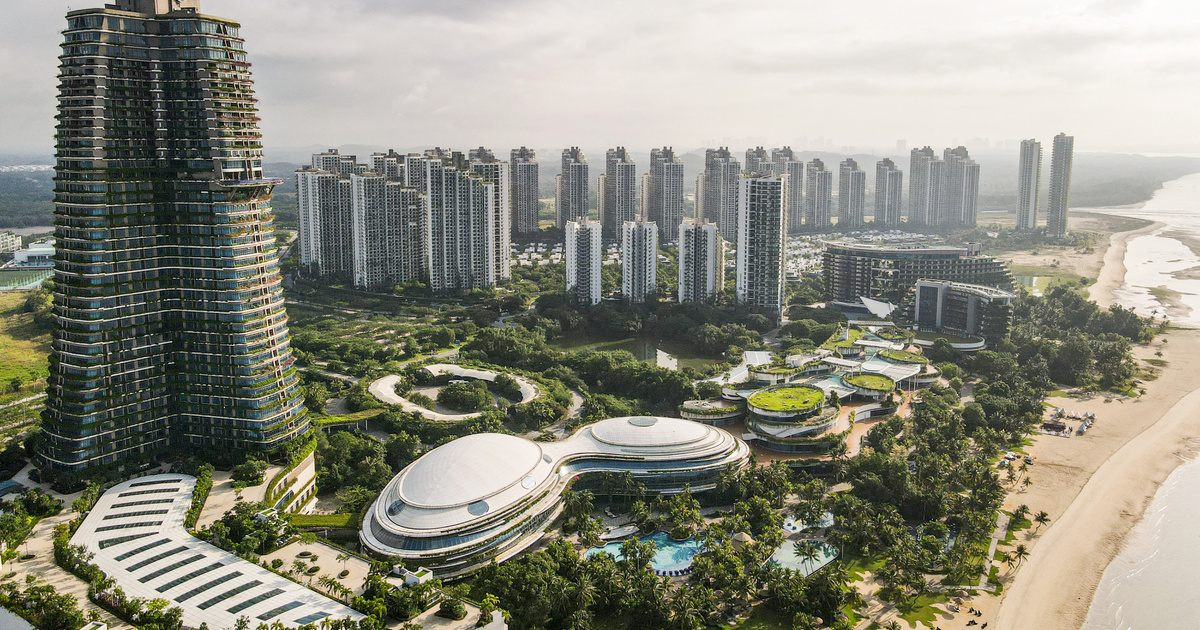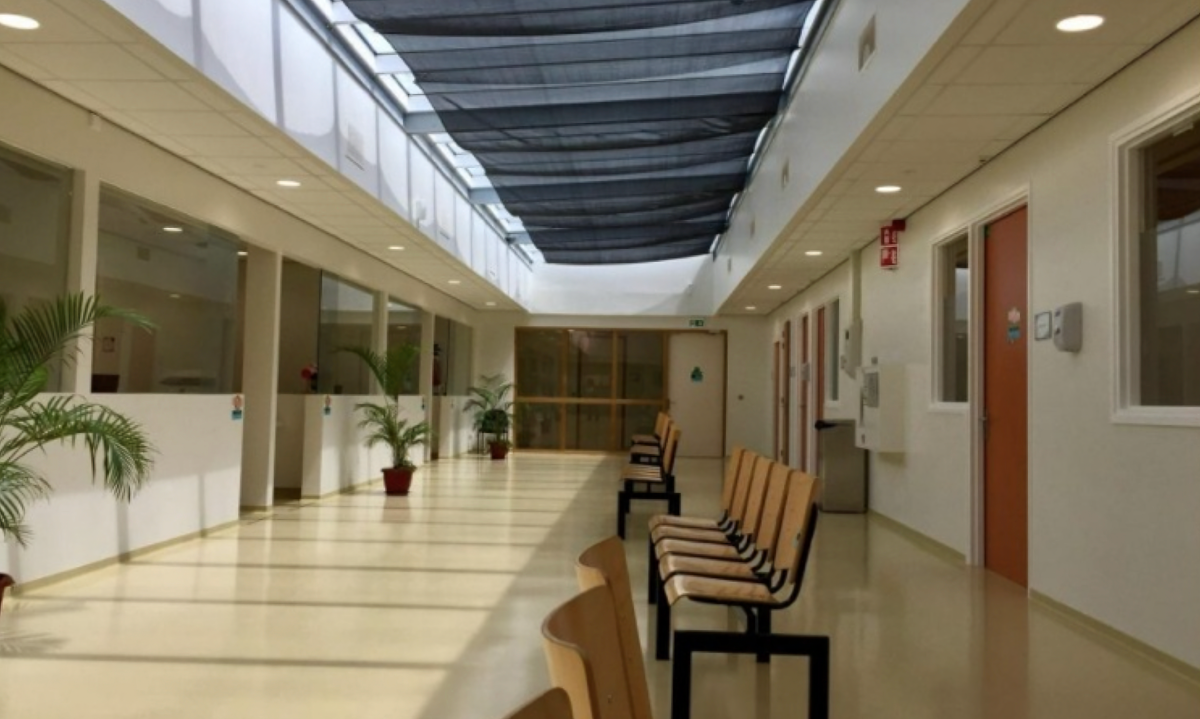#Witch #doctors #coconuts #sexual #assault #Vanuatus #disturbing #world #unwanted #children
Around the world, heated debates about abortion are taking place.
But in the Pacific, the topic is so taboo, only a handful of people are willing to talk about it.
You’re about to hear from some of them.
WARNING: This story contains graphic details of sexual assault and violence against children.
‘Florence’ wearing a mask to hide her identity.
Florence* is about to tell me something that – for a long time – she couldn’t even tell her parents.
“I knew what my mum would say,” she whispers.
“That what I was doing is, I’m pretty much murdering someone.”
But Florence didn’t see it that way.
For her, it was about protecting herself and the precious children she already had.
Florence clearly remembers the moment she found out she was pregnant for the third time.
“I could feel my palms getting sweaty, my heart’s beating faster.”
“There’s a whole blood rush. And all I can think of is my parents. Like, I did this again.”
It happened after a one-night stand in Vanuatu’s capital, Port Vila.
She’d been taking contraceptive pills, but they didn’t work.
Florence was 10 weeks pregnant when she realised – and panicked.
“One, I can’t financially afford it. Two, this person [I was with] will hate me for doing this to him.”
He did hate her.
The man told her he didn’t want anything to do with the baby, then blocked her on Facebook.
‘Florence’ wearing a mask to hide her identity.
Florence knew there was no way she could take care of another child alone.
“I felt like a big disappointment. So I started to look around for ways to have an abortion,” she says.
A statue of a ni-Vanuatu family outside Vanuatu’s parliament house in the capital, Port Vila.
In Vanuatu that isn’t easy.
Abortion is illegal unless there is a good medical reason, approved by two medical doctors.
The laws aren’t clearly defined, and legal abortions aren’t common.
Drone footage of the forest in Vanuatu.
Florence decided to take things into her own hands.
“My first option was to go to a kleva, a witch doctor,” she says.
In Vanuatu, traditional doctors – known as klevas – are often sought out to treat all sorts of medical issues, including abortions.
“He gave me this 1.5 litre of just some green gooey stuff with water. And I drank the whole thing,” Florence says.
Some traditional doctors claim to provide abortions in the Pacific, but the herbal medications they prescribe have not been tested and may put women at serious risk.
“And he said, keep coming, keep coming back, same time in the morning for one full week.”
As Florence drank the putrid concoction, she began to feel extremely sick and weak. But she was still pregnant.
‘Breaking my spirit’
On day five, she went back to the kleva and complained that the herbs weren’t working. She says he told her:
“There are three coconuts. Two coconuts have already been broken, the third coconut must be broken. And the only way for that to happen is that I have to have sex with you, I have to sleep with you. That’s the only way that the full abortion process can be complete.”
Florence was shocked. She refused and left. Now even more desperate, Florence decided to look for other options.
She’d heard rumours of a medical doctor that performed illegal abortions from his home.
A quick Facebook search yielded results, so she sent the doctor a message.
Florence requested an appointment for a “serious health situation”.
The doctor asked for details.
Florence soon had an appointment at the doctor’s home.
She was told to bring around $500.
Florence says when she visited the doctor, he sat her down and told her she was in safe hands.
He gave her two pills to take orally, and said two more would have to be inserted in her vagina.
“That’s when he sexually abused me,” she says.
Florence alleges she was raped by the doctor while he performed the procedure.
The doctor invited Florence to perform the illegal procedure at his house.
“My body completely shut down and froze.”
“He told me that this is part of the procedure, and that all the other women that came here have to go through that because this helps enhance the medical process.”
“I took his word and I went back then the second day, and he sexually abused me again.”
The abortion was unsuccessful.
Sexual assault support services:
But after her encounter with the doctor, Florence’s mental health started to unravel.
“What he was doing to me was really breaking my spirit,” she says.
“I was about to commit suicide. I dropped my child at daycare, and I came back home and I prepared everything to, to just end myself.”
After the alleged abuse, Florence says her spirit was completely broken.
Florence was saved by a friend who banged on her door and took her into care.
Eventually, she gathered the courage to go to the police and report the abuse.
But years later, she’s still waiting for an outcome.
Despite the fear of intense backlash, she’s telling her story because she doesn’t want other women to go through what she did.
Florence contemplated taking her own life. Florence hemi komplen long polis abaut alej abuse be hemi stap wet yet long autkam blong ripot.
“All I know is that as we say ‘no’ to abortion, there is another girl and woman out there doing it.”
“These men that put themselves in this position, claiming that they are here to support these women … and yet they’re abusing them. So by saying no, we are allowing that.”
She wants Vanuatu’s abortion laws to be reviewed.
“This experience and this situation that I’ve been through, it was all unsafe abortion and that’s what I don’t want for any of the women out there.”
No such thing as ‘I was drunk, I was raped’
Currently, abortion laws and views vary widely across the Pacific, leaving many women in limbo or falling between the cracks.
For example, in Palau or Tonga, abortion is prohibited altogether.
In the Federated States of Micronesia, Kiribati, Marshall Islands, Papua New Guinea, the Solomon Islands or Tuvalu, it’s allowed when it is necessary to save a woman’s life.
In Vanuatu, where Florence lives, it is allowed when it is necessary to save a woman’s life and preserve her physical health.
At a small, brightly painted health clinic in the heart of Port Vila, a steady stream of patients wander through the door on a humid Wednesday morning.
Every day, women request abortions at this family health clinic in the heart of Port Vila. But Vanuatu’s laws mean the staff have to say ‘no’.
Most are women, some with babies and young children.
On the counter, there’s a small plastic container with the sign “free condoms” written in marker pen.
For Vanuatu Family Health Association executive director Julius Ssenabulya, it’s just one of many defences against unwanted pregnancies that the clinic has to offer.
Condoms and other forms of contraception are relatively cheap in Vanuatu, but the number of unwanted pregnancies are high. Julius Ssenabulya led some of the Pacific’s first research on abortion in 2015.
But there’s something they can’t provide – even though it’s in high demand.
“We receive people asking for abortion on a daily basis,” Mr Ssenabulya tells me.
“Definitely we have to work within the law, and we don’t promote abortion here, we don’t do it.”
Instead, staff are trained to offer counselling to women, informing them about the risks of unsafe abortion and explaining Vanuatu’s laws.
But it’s not easy work.
The unmet need for family planning in Vanuatu is believed to be around 24 per cent. VFHA staff are required to work within the law. Nurses are trained to offer confidential counselling to women and inform them of the risks of abortion. Advocates want Vanuatu’s abortion laws to be reviewed.
“You know when someone opts for an abortion, there ought to be a reason,” Mr Ssenabulya says.
“Maybe it was a rape, she doesn’t know the potential father of the baby. Maybe it is defilement – someone was underage. Maybe it was incest, incest is common.
“Nevertheless nurses have to follow the law, what the law says. Because under the law there is no such a thing [as] ‘I was drunk, I was raped’.”
Vanuatu has one of the world’s highest rates of violence against women, including sexual violence.
More than 60 per cent of ni-Vanuatu women have experienced some form of abuse from their male partner.
When I ask Mr Ssenabulya if he’d like to see the country’s abortion laws reviewed, his answer is clear.
“Definitely.”
Specifically, he wants the psychological wellbeing of women who are victims of rape to be considered when determining whether an abortion should be allowed.
Steady streams of patients pour into Vanuatu’s health clinics daily. Reading material at clinics highlights the risks of teenage pregnancies.
“You can imagine that kind of trauma. But trauma is not [mentioned] anywhere that is part of the law … so we cannot do anything,” he says.
But Kalorip Sope sees things differently.
The assistant chief of Pango village, his views are informed by traditional cultural beliefs – known as ‘kastom’ – and Christianity.
Assistant chief Kalorip Sope is one of many ni-Vanuatu people who maintain abortion is murder.
“You cannot kill a child. You cannot kill a person. And that’s the belief,” he says.
Many people agree with him.
In 2009, Mr Sope witnessed the disturbing consequence of an unwanted pregnancy, when a newborn baby was abandoned after its birth and mauled by stray dogs.
Kalorip Sope walks through a cemetery in Pango village, on the outskirts of Port Vila. Unwanted pregnancies can end in tragedy, as Pango village residents found out when a newborn baby was abandoned and mauled by stray dogs in 2009. Religion and Christianity play a big role in Vanuatu’s society.
The child’s body was discovered under some bushes nearby a main road in the village.
“It was very shocking for the community,” he says.
When I ask Chief Sope if it would have been better for the mother to be allowed to end her pregnancy early on, he says ‘probably, yes’.
Children play on a beach at low tide, discovering sea life in the shallow waters.
But he still believes abortion isn’t the right answer, even in the case of rape.
“It is still taboo,” he says.
“But I feel sorry for the mother. Because she will be the one facing the consequences.”
He points the finger at mobile phones and access to pornography – saying it encourages young people to have sex without teaching them about the risks of pregnancy.
‘It doesn’t matter what we believe’
This woman was too afraid to tell her family after she had an abortion. She carries the secret with her heavily.
Yasmine Bjournum agrees there’s not enough education around sex, but she doesn’t think the internet is to blame.
“Sex is a taboo conversation in Vanuatu,” she says.
“And abortion is the result of us not speaking to young people about sex.”
In 2016, Ms Bjournum founded Sista, a feminist media outlet that aims to promote conversations and share information relevant to young ni-Vanuatu women.
How to deal with unwanted children is still an unsolved issue in the Pacific. Many single mothers complain that government support for children is still too low.
Through its podcast, website and social media pages, Sista has covered everything from teenage pregnancy to period products.
But abortion is one topic that is almost too tricky to broach.
“We’ve brought it up in conversations. But people really look at you like you’re a baby killer,” Ms Bjournum says.
She wants that to change.
The financial burden of supporting a child often falls on the mother, regardless of her relationship status.
“Women are dying, especially young women,” she says.
“They are doing backyard abortions. They’re seeking termination in ways that are incredibly dangerous to them. And if it doesn’t work, it’s incredibly dangerous to the unborn child.
“We have to start to talk about this as a society.”
She’d like to see women in the Pacific granted greater access to safe abortions – even if it means putting her personal views aside.
“To be quite frank, for me, I personally do not believe in it [abortion] because of my own personal moral beliefs,” she says.
“But I believe that if you want one, your right to have one is more important than my belief. It doesn’t matter what we believe.”
Support – whether financial or emotional – is not a given for mothers. Single mothers are entitled to $12.50 a week — less than $2 per day — in financial support.
There’s also the issue of finances.
Vanuatu’s Child Maintenance Act entitles single mothers to financial support from the government. But the payment is just 1000 vatu ($12.50) per child, per week.
Ms Bjourum says that is simply not enough.
“When a young woman faces an unplanned pregnancy, even if she is in a relationship with the guy, she’s still financially responsible, her family is responsible,” Yasmine says.
“If an abortion is illegal, then it should also be illegal, I think, for a man to opt out of being responsible for the baby once it’s born.”
Vanuatu’s Ministry of Justice and the Department of Women’s Affairs has not responded to the ABC’s request for comment.
The plan also recommends further research on the issue with a view to reconsidering the laws on abortion in the future.
Advocates — like Florence — maintain that the right to choose is more important than people’s personal beliefs.
Florence’s third child is now in school, and she is in a happy, supportive relationship.
“I love my son, now, he’s an amazing kid,” she says.
But she still believes having a safe abortion was a fundamental right that she was denied.
“It’s within my right to know that, you know, I can manage my home to have another child. I want to be ready for it.”
In the end, she did tell her parents what happened, and their reaction wasn’t what she expected.
“All they wanted to do was just to help me and support me,” she said.
“I felt a lot of peace. And that’s what I needed.”
*Florence’s real name has been redacted for legal and safety reasons.
• Ridim stori long Bislama long hia •
Watch The Pacific on ABC Australia at 6:30pm Thursdays or online via ABC iView or YouTube.
WatchDuration: 14 minutes 5 seconds14m One young mother alleges she was raped by a medical doctor in Vanuatu while he secretly performed an abortion on her.
Credits
- Reporter & Photographer: Marian Faa
- Additional Reporting: Monique Sangul & Nikiatu Kuautonga
- Videographer: Nikiatu Kuautonga
- Graphics & Video Editing: Cordelia Brown
- Translations: Leah Lowonbu
- Producer & Editor: Steven Viney
Editor’s Note: This reporting was supported by the Sean Dorney Grant for Pacific Journalism through the Walkley Foundation.










